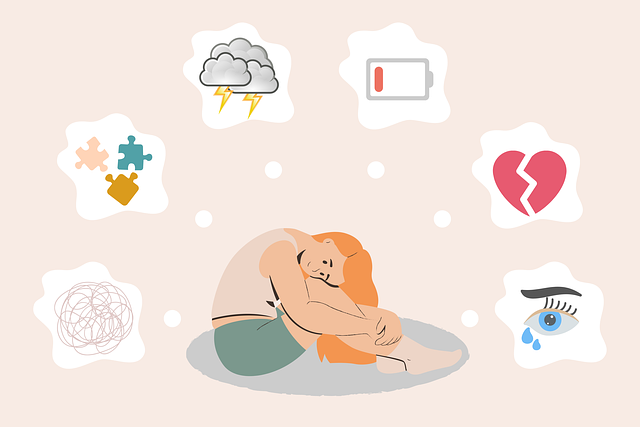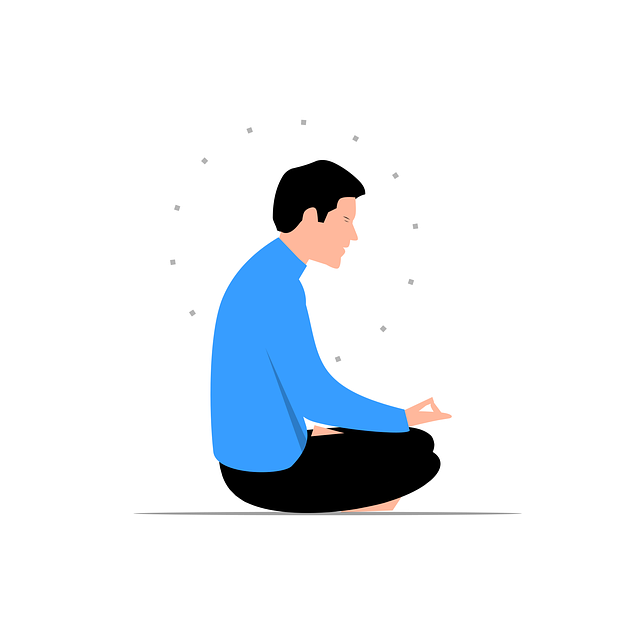Journaling as play therapy offers a creative, private space for young children to express themselves and process emotions, empowering them to develop positive thinking and emotional regulation skills. For mental health professionals, integrating this approach into sessions enhances cultural sensitivity and provides valuable data for tracking progress, identifying patterns, and mitigating risks. By guiding kids through structured yet open-ended writing exercises during dedicated time slots, professionals can maximize the therapeutic benefits of journaling as part of a holistic self-care routine. Converting these journals into a podcast series can also extend their impact, sharing insights for both children and caregivers.
Mental wellness journaling is a powerful tool for young children, offering a creative outlet to explore emotions and thoughts. This article guides parents and educators through the process of introducing play therapy via journaling, highlighting its numerous benefits. We’ll provide practical tips and effective exercise guidance tailored for young minds, fostering self-expression, emotional intelligence, and overall mental wellness. Discover how this simple practice can be a game-changer in supporting children’s play therapy journey.
- Understanding Mental Wellness Journaling for Young Children
- The Benefits of Play Therapy through Journaling
- Practical Tips and Exercise Guidance for Effective Journaling
Understanding Mental Wellness Journaling for Young Children

Journaling can be a powerful tool to support mental wellness in young children, offering a creative outlet for self-expression and reflection. Unlike traditional talk therapy or play therapy sessions, journaling allows kids to engage in a more private and personal way, encouraging them to explore their thoughts, emotions, and experiences on paper. This activity can help foster positive thinking by providing a safe space for them to articulate their feelings and work through challenging situations.
For play therapists and mental health professionals working with young children, incorporating journaling into therapy sessions can be a game-changer. It promotes cultural sensitivity in mental healthcare practice by allowing children from diverse backgrounds to express themselves uniquely. Additionally, the process of creating a mental wellness podcast series production inspired by these journals could further extend the therapeutic benefits, providing a platform for sharing insights and strategies that resonate with both young audiences and their caregivers.
The Benefits of Play Therapy through Journaling

Play therapy through journaling offers a unique and engaging approach to supporting mental wellness in young children. By incorporating creative expression into their therapeutic process, children can explore and communicate their emotions, thoughts, and experiences in a way that feels natural and fun. This method allows them to process complex feelings, gain insights into their behaviors, and develop coping strategies at an early age.
For mental health professionals, integrating play therapy techniques into journaling exercises provides valuable tools for risk management planning. By facilitating a safe and supportive environment where children can freely express themselves, professionals can gather deeper insights into their clients’ psychological states. Moreover, the process of documenting these sessions through detailed notes or digital journals offers an effective stress reduction method for professionals, enabling them to track progress, identify patterns, and make informed decisions in their practice, including effective risk mitigation strategies.
Practical Tips and Exercise Guidance for Effective Journaling

Journaling can be a powerful tool for young children to explore and express their emotions, serving as a form of therapy for young children and play therapy. To make it effective, mental health professionals should guide kids in using this practice as a means of emotional regulation. Start by setting aside dedicated time each day for journaling, ensuring it’s free from distractions. Encourage children to choose topics or prompts that resonate with them, allowing for open-ended exploration and self-expression.
Incorporate diverse writing exercises tailored to different preferences. Some days could involve drawing a picture and then narrating the story behind it. Other times, simple prompts like “Describe how you’re feeling today” or “What made you happy recently?” can unlock hidden emotions. For those who enjoy structure, consider providing lists of topics or questions related to risk management planning for mental health professionals, such as tracking triggers, positive affirmations, or reflections on coping strategies. Remember, a consistent self-care routine development for better mental health is key; journaling becomes more beneficial when woven into a holistic practice of emotional well-being.
Mental wellness journaling can be a powerful tool for young children, offering a creative outlet for expression and a means to navigate their emotions. By combining play therapy with journaling exercises, adults can guide kids towards improved mental health and well-being. Through simple yet effective practices outlined in this article, you can empower young individuals to explore their thoughts, process experiences, and develop valuable coping strategies, fostering a healthier and happier future.











